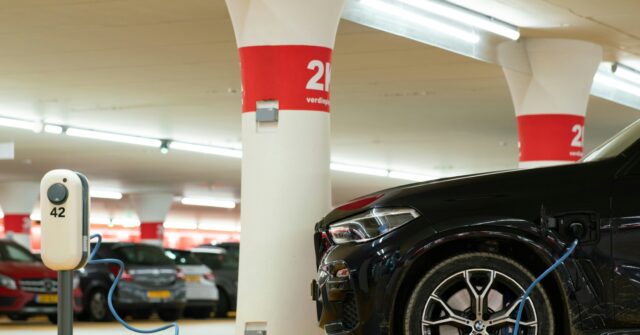In Germany, the push to transition to electric vehicles (EVs) is facing significant hurdles. A recent report reveals a startling trend: one in three electric vehicle owners are switching back to traditional internal combustion engine (ICE) cars. This switch-back trend indicates that many early adopters of EV technology are finding it incompatible with their lifestyles, thus undermining the broader goal of a successful green energy transition. Contributing to this dilemma is the recent removal of subsidies for electric cars, which previously offered consumers substantial financial incentives of €4,500 to €6,000, funded by taxpayers. With the looming goal of banning the sale of new ICE vehicles by 2035, the German government must address these challenges and cultivate public acceptance around EVs in the years leading up to this deadline.
The current landscape reveals distinctly unfavorable statistics for electric vehicle adoption among German motorists. According to data, only 3.6 percent of ICE vehicle owners are switching to electric models, with electric vehicles now comprising a mere 2.9 percent of all vehicles on the road. In a stark contrast, a significant 34 percent of EV owners have reverted to ICE vehicles this year alone. This figure reflects an ongoing trend, nearly doubling from the 14 percent switch-back rate observed in 2021, signaling deepening disillusionment amongst those who initially embraced EV technology. Such figures illustrate a critical challenge: the current electric vehicle offerings are failing to convincingly meet the expectations and needs of a substantial portion of the public.
Despite these challenges, some surveys portray a more complex picture of public sentiment regarding electric vehicles. While 29 percent of Germans assert they would only consider EVs if mandated by law, only 18 percent express willingness to consider an electric model for their next vehicle purchase. This disparity hints at a significant gap between expressed willingness and actual purchasing behavior, providing a stark warning to policymakers regarding the necessity of aligning incentives with public acceptance. Overall, perceived hurdles, such as range anxiety, charging infrastructure, and cost remain strong deterrents for many potential EV owners.
The implications of this trend extend beyond consumer behavior and into the operations of German auto manufacturers, many of whom have heavily invested in battery technology and the development of electric models. The weak sales figures for electric vehicles are alarming for automotive companies like Mercedes-Benz, which recently announced it would be scaling back its plans to become fully electric by 2030, opting instead to continue producing ICE vehicles into the next decade. The challenges extend further as manufacturers are contending with fierce competition from cheaper Chinese imports, which threaten to undercut the market for European-made electric vehicles. As such, manufacturers’ faith in the profitability and viability of the electric vehicle market is rapidly being tested.
In an effort to bolster its local automotive industry, the European Union has recently introduced tariffs of up to 35 percent on Chinese imports. While this measure aims to protect European car makers from losing market share to low-cost alternatives, it could simultaneously hinder the broader electric transition across Europe. By limiting access to more affordable electric vehicle models, these tariffs may ultimately discourage potential buyers from leaning towards electric cars, as prices for domestic options may rise. This presents a conundrum: while the protectionist policy seeks to safeguard domestic manufacturers, it risks slowing down the very transition to electric mobility that Germany considers crucial for its future.
In summary, while the German government is committed to transitioning away from internal combustion engines by 2035, the current attitudes and behaviors surrounding electric vehicles pose a major challenge. Increasing rates of switch-backs from electric to traditional cars signal widespread dissatisfaction among EV owners, driven by issues such as inadequate subsidies and persistent range anxiety. Moreover, the car manufacturers’ struggle to compete against cheaper foreign imports paired with EU tariffs creates a complicated landscape that threatens the viability of Germany’s ambitious electric vehicle goals. To navigate these challenges effectively, German policymakers must develop strategies that not only support the automotive industry but also address the needs and concerns of consumers to achieve a robust and sustainable shift towards greener transportation.

